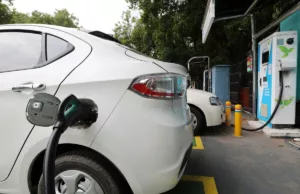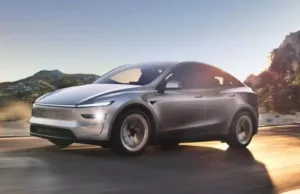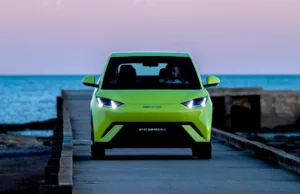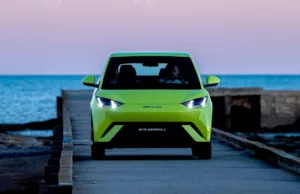Automundo China
Japan’s EV Sales Crash By 33% In 2024 But Foreign Brands...

Sales of EVs in Japan have dropped sharply as buyers prefer hybrids, but foreign brands like Tesla, BYD and Hyundai have made serious inroads in the country
BYD Partners With Grab to Expand EV Footprint Across Southeast Asia

BYDDY partners with Grab to provide Grab driver partners access to up to 50,000 BYD EVs across Southeast Asia.
Tesla’s Asian Rivals Pull Ahead in India’s Nascent EV Market

Suzuki Motor Corp.’s India unit, BYD Co. and VinFast Auto Ltd. are among carmakers gearing to showcase their new electric vehicles in New Delhi as the fight intensifies for the fastest-growing major automobile market where Tesla Inc. is conspicuous by its absence.
How German industry can survive the second China shock

China's industrial subsidies and aggressive export-led growth are undercutting German manufacturing. To defend its automotive and engineering sectors, Germany must finally get tough on China with trade and industrial policies.
Grab, BYD Partner to Expand Electric Vehicle Fleet in Southeast Asia

BYD vehicles will feature Grab's driver app on built-in displays, improving navigation and communication for driver-partners.
BYD Closing the Gap on Tesla in Global EV Market Share

Tesla's global EV market share lead has narrowed significantly due to the rapid rise of BYD.
This EV Market Is Getting the Updated Tesla Model Y First

The Juniper facelift for Tesla’s midsize crossover will take some time to appear in all regions, and the US is not at the head of the line.
BYD to supply 50,000 vehicles to Grab ride-hailing service for Southeast...
The cooperation covers Indonesia, Malaysia, the Philippines, Singapore, Thailand and Vietnam, involving a number of BYD models including the Denza D9, Atto 3, Seal, and M6.
The post BYD to supply 50,000 vehicles to Grab ride-hailing service for Southeast Asia appeared first on CarNewsChina.com.
BYD’s $10,000 Seagull EV is getting an upgrade: Here’s our first...

BYD’s best-selling EV is also its cheapest, starting at under $10,000 in China. Leaked images reveal that BYD’s Seagull EV...
BYD’s cheapest EV is getting an upgrade: Here’s our first look

BYD’s best-selling EV is also its cheapest, starting at under $10,000 in China. Leaked images reveal that BYD’s Seagull EV...












